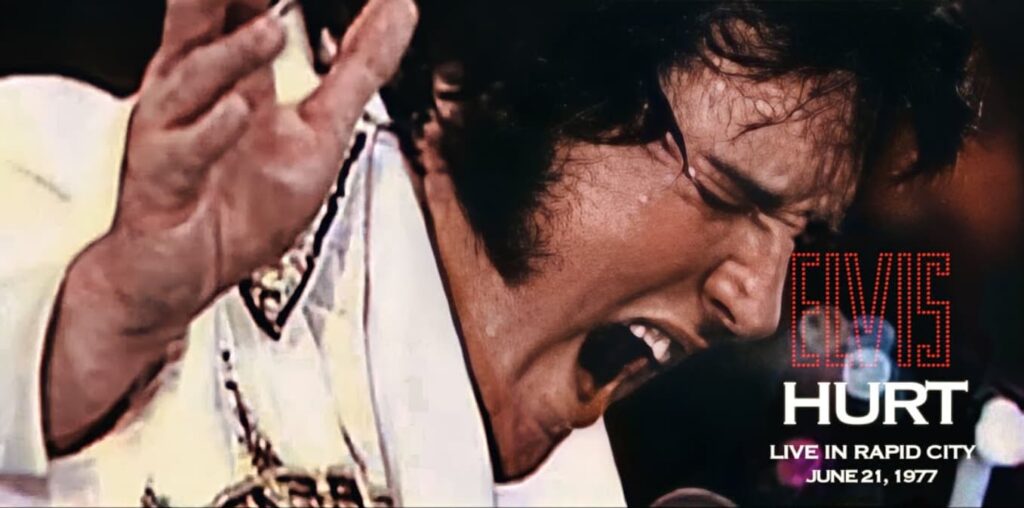
“Hurt” is a raw and powerful ballad that encapsulates the profound agony of a man at a crossroads, expressing emotional and physical pain that transcended mere heartbreak.
In the mid-1970s, the world was a different place. The rock and roll explosion of the 50s had mellowed, replaced by the smooth grooves of disco and the defiant howl of punk. And in the midst of it all stood Elvis Presley, no longer the rebellious young firebrand with a sneer, but a figure of immense, almost regal, sadness. It was in this somber, reflective period that Elvis recorded “Hurt”, a song that would become not just a hit, but a chilling and unforgettable testament to his final years. Released as a single in March 1976 from the album From Elvis Presley Boulevard, Memphis, Tennessee, the song found its way to a modest number 28 on the Billboard Hot 100, but its true resonance was felt on the country charts, where it soared to a more fitting number 6.
To understand why this song is so significant, one must first look at its history. Originally a rhythm and blues hit for Roy Hamilton in 1954, “Hurt” was a dramatic, almost operatic, lament. But when Elvis got his hands on it, the song transformed. At this point in his life, Elvis was no longer simply interpreting lyrics; he was living them. His life was a whirlwind of private struggles, chronic health issues, and the crushing weight of a legacy that had become too heavy to bear. The song’s lyrics—”I’m hurt, much more than you’ll ever know”—seemed to be a direct, unfiltered glimpse into the man’s tormented soul. It was a confession sung to the world, a moment of profound vulnerability from a man who had spent his career carefully cultivating an untouchable image.
The recording sessions for the album took place in the “Jungle Room” at Graceland. RCA had brought a mobile studio to his home, a sign of how reluctant Elvis had become to enter a formal recording studio. It was here, in the familiar and comfortable surroundings of his own den, that he laid down one of his most powerful vocal performances. With each note, you can hear the strain and the genuine emotion, the voice not of a rock idol, but of a mortal man wrestling with his own demons. The sheer intensity of his delivery, the guttural roar that follows the climactic note, was so profound that it became a signature moment in his live shows. He would often end the song on his knees, head bowed, an act of exhaustion and surrender that left audiences speechless.
For those of us who remember seeing him perform during those final tours, there was a certain kind of painful beauty to it all. He was visibly ailing, a shadow of the man he once was, but when he sang “Hurt”, the old fire returned. It was as if all the anguish and sorrow that weighed him down was channeled into that one, powerful performance. The song was a catharsis for him and for us, a shared moment of raw, human feeling. It wasn’t about a broken heart from a past love; it was about the crushing reality of a life lived in the blinding public eye, the isolation that comes with immense fame, and the physical and emotional toll it had taken. More than four decades later, the song stands as a monument to the man, not the myth, and a poignant reminder of the price of greatness.